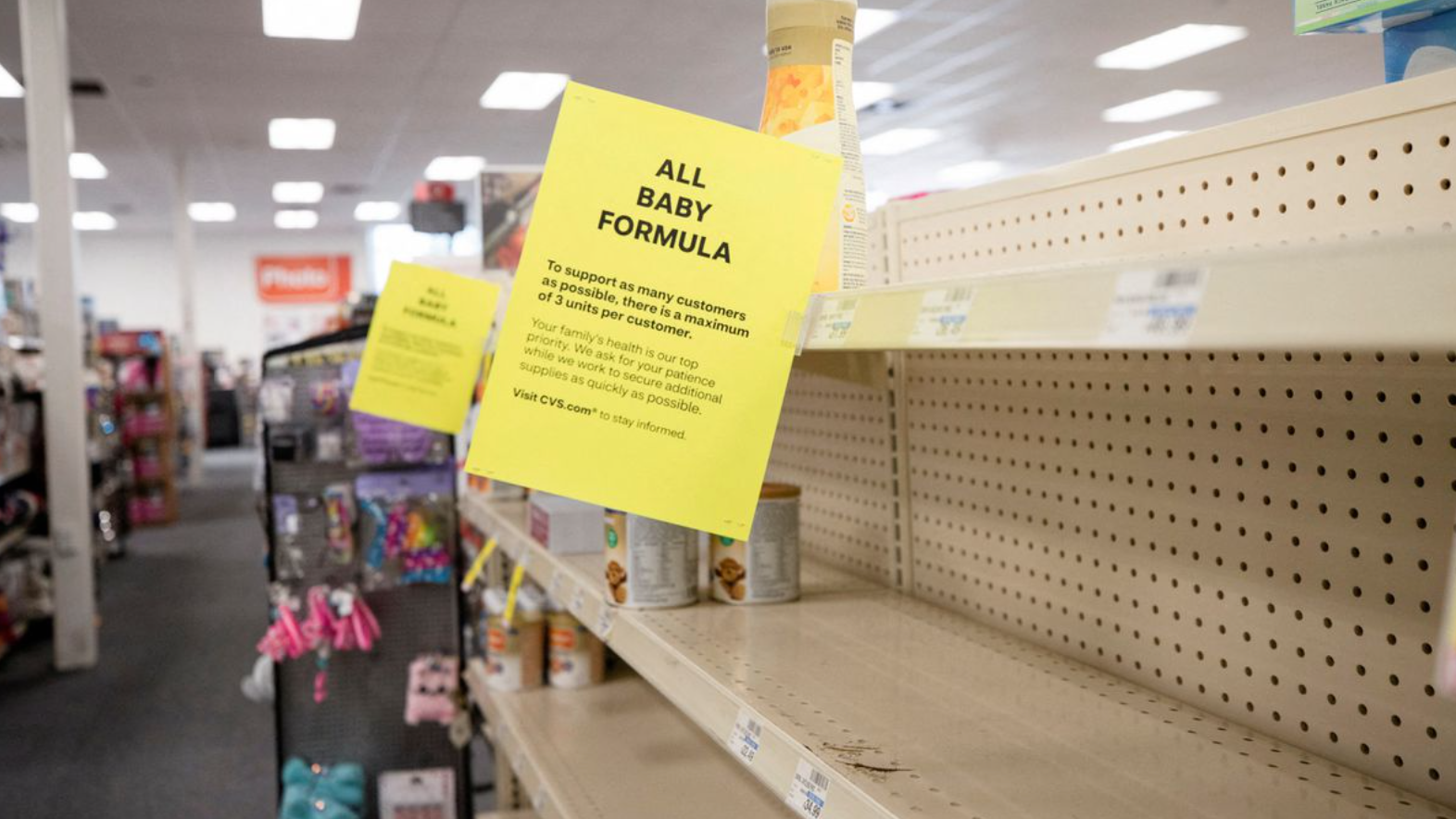
A shortage of baby formula at a CVS store in San Antonio, Texas, U.S., May 10, 2022. /Reuters
A shortage of baby formula at a CVS store in San Antonio, Texas, U.S., May 10, 2022. /Reuters
The U.S. antitrust rules have been ineffective at preventing monopolies that hurt consumers, which has been acknowledged by the Biden administration, according to a report released on Thursday by business-focused media outlet Quartz.
According to Quartz's report, the vast shortage of infant formula in the U.S. resulted from the suspension of operations in an Abbott Laboratories plant in Michigan earlier this year, after the finding of samples of a lethal bacteria.
As the baby food sector is controlled by two companies, Abbott and the Reckitt-owned Mead Johnson, which dominate three-quarters of the market by sales, a sudden disruption can trigger a crisis and hurt consumers.
Several other sectors in the U.S. are oligopolies and have witnessed disruptions over the past two years due to COVID-19 and supply chain issues, according to the report.
For example, four firms make up three-quarters of the U.S. beef sector, so when some closed during the COVID-19 pandemic, there were troubles for farmers who couldn't sell their livestock for processing.
The bioprocessing market is also an oligopoly, which is in the hands of just four companies, resulting in crucial bottlenecks in vaccine production.
"The monopolists are winning," said a data scientist at the Media Lab of the Massachusetts Institute of Technology.

